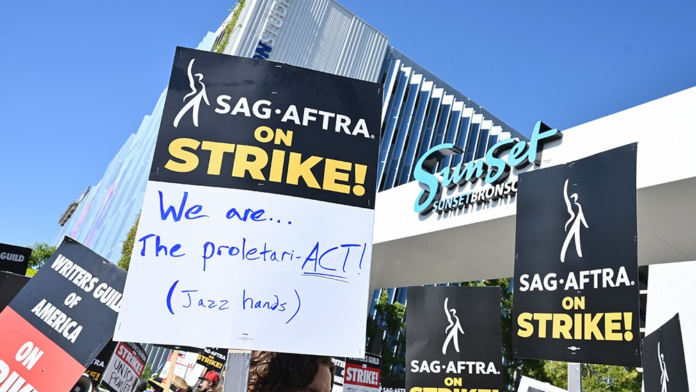Entertainment workers have moved to take more than $44 million out of their individual retirement accounts as they endure months without work due to the strikes.
Nearly 3,000 workers have filed for hardship withdrawals, according to an update circulated on Friday by the Motion Picture Industry Pension and Health Plans. The average withdrawal is about $15,000.
The figures, which were confirmed by two labor sources, show the scale of the economic hardship facing Hollywood’s below-the-line workforce, which includes set painters, grips, craft service workers, drivers, cinematographers, costumers, hair and makeup artists, and many others.
The Writers Guild of America strike began on May 2, shutting down most scripted TV and film productions. But work had already been slow for several months before that. Many workers have said they have not worked since January or even last fall, causing them to use up their emergency savings.
The Entertainment Community Fund has distributed more than $6.5 million in aid to 3,100 struggling workers. The Motion Picture and Television Fund also gives out grants up to $1,500, and the WGA and SAG-AFTRA also have their own strike relief funds for their members.
Several high-profile people in the industry — including Steven Spielberg and Kate Capshaw, Ryan Murphy and Greg Berlanti — have also contributed $500,000 to $1.5 million to benefit out-of-work crew members in recent days.
The MPIPHP covers workers in the International Alliance of Theatrical Stage Employees and the Basic Crafts unions, including Teamsters, laborers and electricians.
Members who participate in the defined-contribution retirement plan, which is similar to a 401(k), are eligible to take as much as 20% of their account balance, up to $20,000. The MPIPHP announced the one-time hardship withdrawal program on July 31, and began accepting applications on Sept. 1.
Members who have not reached retirement age must pay a significant price to withdraw money early — a 10% federal penalty, plus a 2.5% penalty for California residents. Withdrawals are also taxed as ordinary income.
The unions urge members to seek tax advice before applying for hardship withdrawals.
SAG-AFTRA has also been on strike since July 14.
The Alliance of Motion Picture and Television Producers has not met with the WGA in the bargaining room for more than three weeks. On Friday, the two sides exchanged warring public statements, but did not move toward a resumption in negotiations.
“Every member company of the AMPTP wants a fair deal for writers and actors and an end to the strikes, which are affecting not only our writer and actor colleagues, but also thousands of others across the industry,” the studio alliance said.
The WGA said: “We share the frustration with how long the companies are prolonging the strike, and remain committed to negotiating a fair resolution as fast as possible.”


